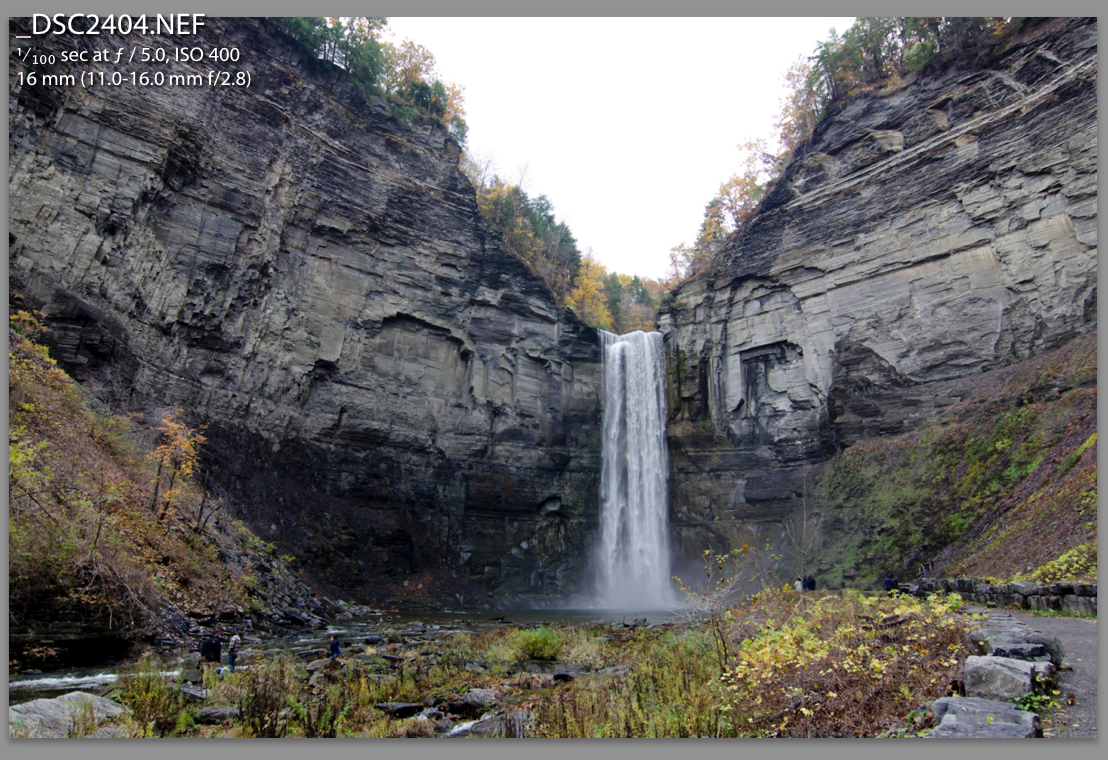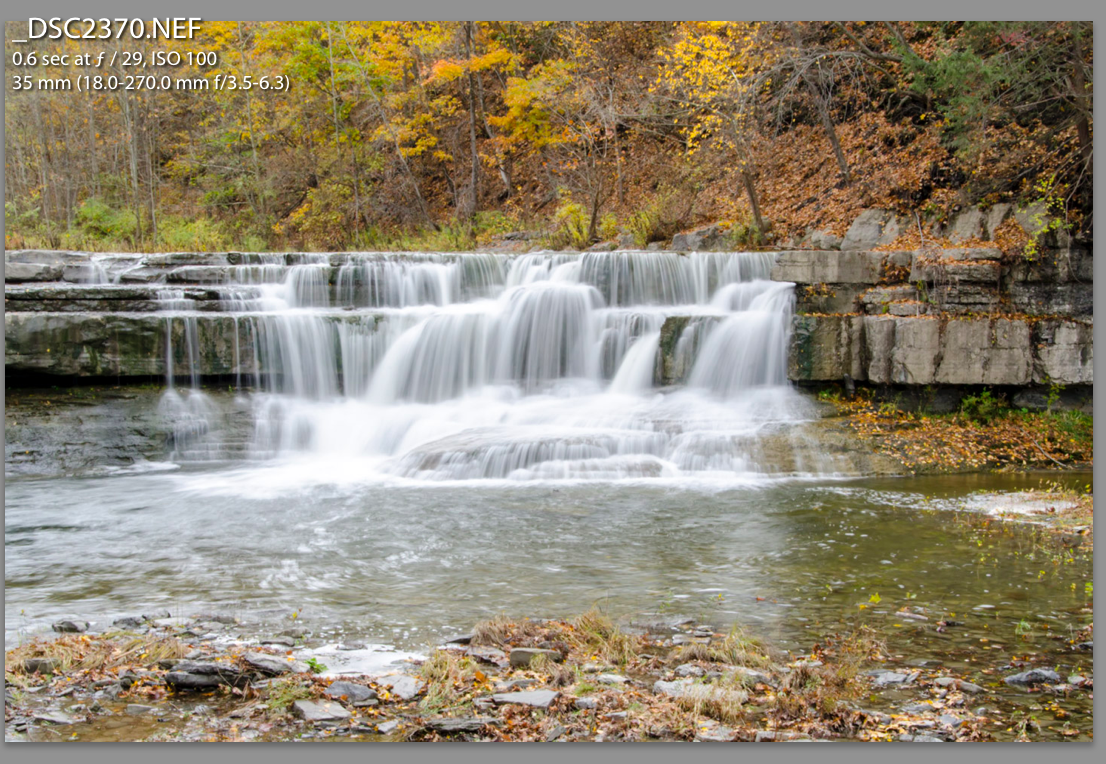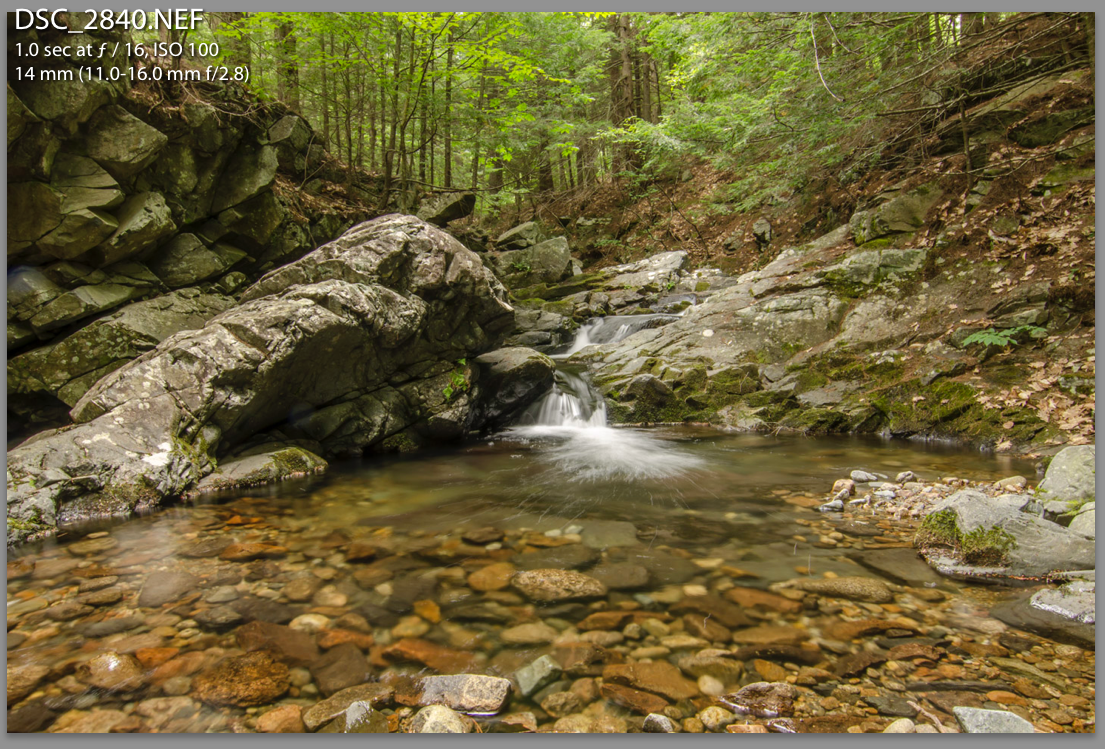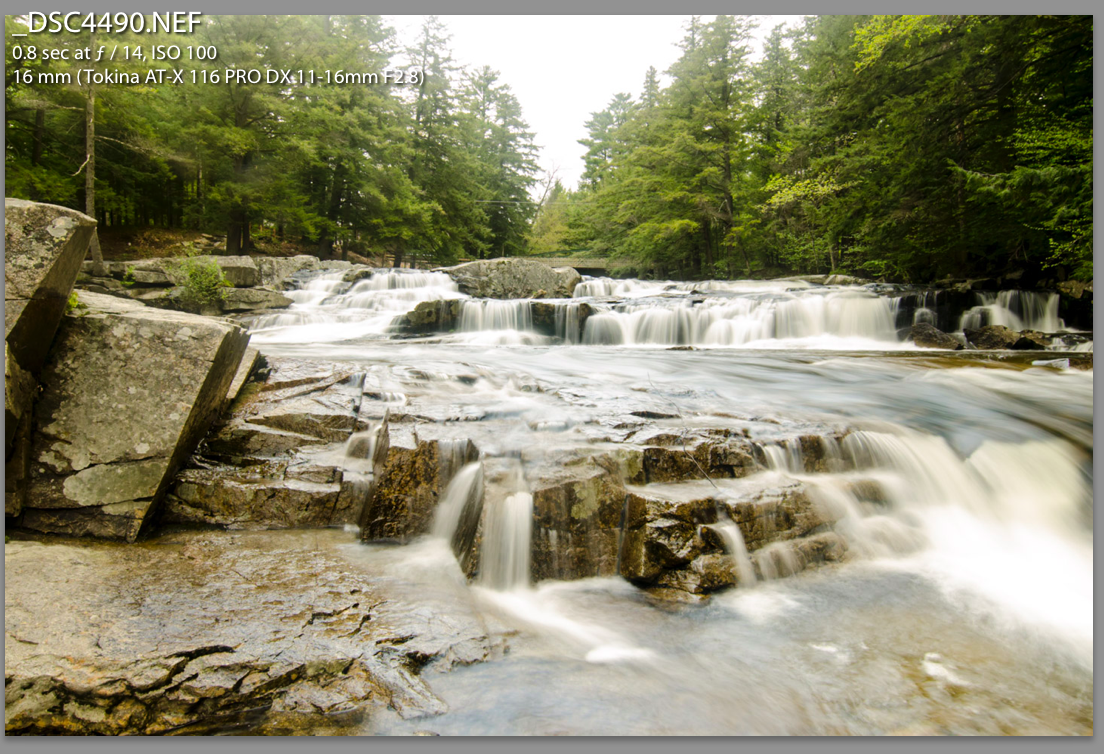Part FIFTEEN: Working For Yourself
Long Exposure Photographs
Easiest thing in the world to do.
Hardest, too!
Recently, we've looked at Filters, including NIK's Viveza, ColorFX Pro, Silver FX Pro.
We've talked workflow, and archiving.
Today, I am going to talk about technique for Long Exposure, while in the field.
Long Exposure: It's truly very easy to do, just set your camera to either manual mode, or Exposure Mode and set the Exposure Time for any shutter speed longer than normal. There's truly no defined length, to make something Long Exposure or Slow Shutter. Most photographers define it as anything causing motion blur, typically at least 1/10th or slower exposure time. I know of great photographers that can hand hold a shot at 1/30th or even 1/15th and get a decent shot.So, I use at least 1/10th of a second, or longer, as my point to define it.
What do you need? Really?
A Camera. That's it. All you really need is a camera.
In practical terms, there's much more to it.
Here's my typical gear load:
- My Nikon d7000,
- A Lens (for me, I am usually shooting with my 11-16mm Tokina Wide Angle.
- My tripod
- My remote shutter release. I spent a whopping $12 USD, to get a simple wireless remote.
I also pack a couple of filters, for making some shots:
- A Tiffen Variable Neutral Density Filter, for between 2 Stops (ND 0.6) and 8 Stops (ND 2.4) of light
- A Phottix Variable ND Filter, also between 2 Stops (ND 0.6) and 8 Stops (ND 2.4) of light
Both filters work the same: Essentially, two counter-rotating polarizing filters, that allow you total control of how much light you let in, or don't. To use, simply screw it onto the front of your Lens, and then rotate the front Polarizing filter to make less or more light come through.
Why add the filter?
Most of the time, I shoot in daylight, a Long Exposure Waterfall, or golden hour (at sunrise or sunset), and still have plenty of sunlight available. If I shoot without the filter, and do a one minute exposure, the image will surely be completely over exposed.
My Workflow in the Field while shooting:
Camera ON Tripod!
Remote in hand.
Focus and frame the image with ZERO stops of light filtered out.
I shoot Long Exposure on Exposure Mode, and get the Aperture correct with the use of my Camera.
I shoot Manual Focus otherwise, the camera will be trying to focus, when you are trying to shoot.
Once I have the image framed, and focus set, I start with a first shot. USE the Remote trigger. The goal is to eliminate ALL camera shake. A rock solid Tripod, and using the remote trigger, eliminates even the tiny vibration of your finger pushing the shutter button on your camera.
I check in the LCD to see if this is the image I was going for. Long Enough? Too long? How is exposure?
Here is a shot without the ND Filter:
Here is a shot with the ND Filter:
When I am shooting Long Exposure, I shoot a variety of the same shot with different settings. 1 second, 2 sec. 1.5 sec. 0.6 secs, etc. I will shoot a few images with all the settings the same except perhaps change out ISO. Or shoot 3 while changing the Aperture. Basically, shoot more images while in the field than you need to. Vary your settings until you get a good sense of what you want for ideal shots. The LCD on the back of the camera is OK, but it's better to cover your bases with more shots than less.
A few more shots:
About the only difference with Long Exposure Night Photography, is No Filter. AND, I shoot for minutes, instead of a few seconds. I like to make sure there is something in the frame. A Lighthouse. A tree, something, in the foreground.
So, once I shoot all those LONG exposure shots, I still do some post processing.
For me, back to the office, make backups (see part 6), and then into Lightroom. Process the Lens Correction. Exposure, and Color Temp. I go into Viveza (Part 11) and find the structure and detail I want. Also, back into Photoshop for final touches.
Part 14 WORK for yourself: Creating A Panorama
Part 13 WORK for yourself: NIK’s Silver FX Pro Filter
Part 12 WORK for yourself: NIK’s Color Efex Pro Filter
Part 11 WORK for yourself: NIK’s Viveza Filter
Part 10 WORK for yourself: High Pass Filter
Part 9 WORK for yourself: Photoshopping’
Part 8 WORK for yourself: Go To The Light…room!
Part 7 WORK for yourself: From Here To There, My Workflow!
Part 6 WORK for yourself: RAW?JPG? Add Copyright Note
Part 5 WORK for yourself: My Machine, My Hardware!
Part 4 WORK for yourself: More Stuff? More Money!
Part 3 WORK for yourself: Camera? What Camera?
Part 2 WORK For Yourself: Wait? You Charge HOW Much?
Part 1 WORK for Yourself: How Much Can I Make?









I love waterfalls but have never tried long exposure. Thanks for sharing instructions/guide on how you captured these amazing photos. I will try to use manual, I've been lazy and have always been on auto. :)
Good photography is like pornography; I don't know what it is but I'll know it when I see it. Just don't expect either from me.
You obviously know how to do what you do, and passing on your knowledge is a wonderful project. I will be recommending this course to anyone who enjoys taking pictures and wants to get more out of it.
Trust me, I'm a doctor.
"Trust me, I'm a doctor"
Las time I fell for that, I...
... uhm... maybe that's an entirely different post!
Thanks, though. Love the comment.
too many people are too serious. Nice to see people enjoying life!
These are great. Long exposure is fun to play with, much more affordable with digital. I've always loved waterfalls as well. Nicely done and kudos on making it 15 yrs solo, that's not easy to do.
Thanks...
Though my main skill is music I do enjoy photography as amateur and I love hiking, following to bookmark. :)
thanks.
Really nice clear and focused discussion of the equipment and techniques needed to shoot long exposure! Your own (exceptional) photography serves to illustrate your points nicely! Great job on this series, just looking back through the prior episodes now and this is an impressive contribution to the blockchain! You rock :)
Much love - Carl
thanks, Carl.
Hi @bluefinstudios, I just stopped back to let you know your post was one of my favourite reads and I included it in my Steemit Ramble. You can read what I wrote about your post here.
Join us on Thursdays for Pimp Your Post Thursday at 11am EST or 7PM EST in the Steemit Ramble Discord or:
If you’d like to nominate someone’s post just visit the Steemit Ramble Discord
Many thanks.
As I said, I'm recommending your course to as many people as I can. I'm pretty sure I have more than three readers, so this may help.
This excellent post was included in our new curation effort The Magnificent Seven -- a collaborative work by @enchantedspirit and @catweasel. You have received a 100% upvote from each of us to show our appreciation for your post. To see your creation showcased here ... and the fine company you keep ... please visit this link.
We appreciate your support both for our work on this project and for the other creators of exceptional content who make it all possible. (Follow @catweasel to catch our future Magnificent Seven posts. @enchantedspirit says I'm really not as annoying as you might think, but she doesn't mean it.)
I am honored to be a part of the Magnificent One Hundred Eighty Nine (Magnificent Seven #27)!